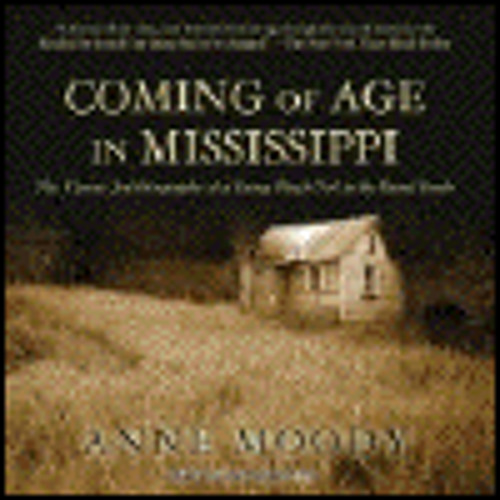
Her crumbling childhood home sits on the recently renamed Anne Moody Street, and Anne Moody Memorial Highway now connects Centreville and Woodville, the town where she graduated from high school. Hostile Whites in Moody’s hometown of Centreville, Mississippi even threatened to kill her if she ever returned.īy contrast, today, Coming of Age shows up on high school and college reading lists throughout the South, and Moody appears among 21 authors pictured on the Mississippi Literary Map. Meanwhile, for decades, Southern media outlets and public institutions shunned Coming of Age in Mississippi and Moody herself.

As a child, she chopped and picked cotton, cleaned houses for White people, and wondered why Whites had better everything - better bathrooms, better schools and better seats in the movie theater.

In spare, direct prose, she takes readers into the world of African American sharecroppers in the Jim Crow South. Written when Moody was 28 years old, Coming of Age is a gripping story. Ted Kennedy wrote in 1969, “If things are somewhat different, then they are not different enough.” or does it instead show us that, as former Sen. Does it signal dramatic progress on race relations in the U.S. Read each year by thousands of high school and college students, it remains a Random House backlist best-seller, a title that continues to sell with little to no marketing.Īs I research Anne Moody’s life for my upcoming biography, I often wonder what her memoir’s continued popularity means. It spoke to the day’s pressing issues - poverty, race and civil rights - with an urgent timeliness.įifty years later, the book still commands a wide readership. A rare exception is Anne Moody’s Coming of Age in Mississippi, which was published in 1968.

Twitter/AnneMoodyHistoryProject Ann Moody


 0 kommentar(er)
0 kommentar(er)
